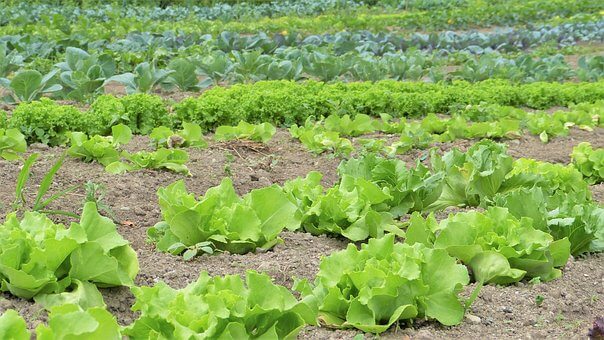Purchasing a farm in Virginia has many positive aspects and a plethora of options of what you can do with your land. In previous blogs we spoke about using your farmland to raise livestock, having a vineyard or just enjoying the land as a family property. Today I will discuss tips and advice on having a successful vegetable garden which is another option for farm property.
Currently I reside with my in laws on their family farm while we build a house close by. My father in law, Jeff has been farming for decades and I am in awe each day of what he can do with his garden. Yes it takes a lot of dedication, weeding and keeping the soil healthy in order to have organic produce but it is well worth it. While his farm is 10 acres he uses about a ¼ acre for his garden because he does it all by hand without farm machinery. Keep in mind the more land you have dedicated for a garden, more time it will take to maintain it. With his garden my father in law spends about 8 hours tending; whether that be weeding, watering, trimming his grapes, picking produce or chasing deer away there is ALWAYS something to be done. So if you want to have a personal vegetable garden or a large scale garden to sell produce to local vendors keep in mind these important tips:
- Know what will grow well in your climate zone. USDA has a plant hardiness zone map which details what vegetables grow well in your area. Planting at correct time is KEY to having a successful garden. Virginia is located in 5-8 USDA Plant Hardiness Zone.
- Frost Dates: Know when the 1st and last frost dates will be and plant accordingly. You will want to plant your crop AFTER the threat of frost.
- Study your garden for exact sun exposure, humidity levels, and soil quality. Agriculture departments at your local college will at times examine your soil quality to determine what minerals, acids, etc are present in the soil or what is present in soil that could be damaging. Which in turn can help you to know what fertilizers, etc are needed to help soil quality.
- Acquire your plants and determine what will grow best in your garden. Grow seeds yourself, join a seed exchange or purchase from local nurseries. According to noted Virginian William Byrd II, plant crops that are native to your area. A few of these crops he suggests are corn, fava beans, beets, potatoes, cabbage, carrots, cucumbers, tomatoes and many others.
My father in laws garden has been successful by following the tips above and doing his research of what will grow well. His garden took about a year to fully produce what he planted but also has improved each year. A successful garden will not survive if you just plant crops and walk away. You need to maintain the garden like you do a vehicle (watering, weeding, and adjusting soil quality as needed) and if you take care of your garden it will generate amazing organic vegetables each year.

